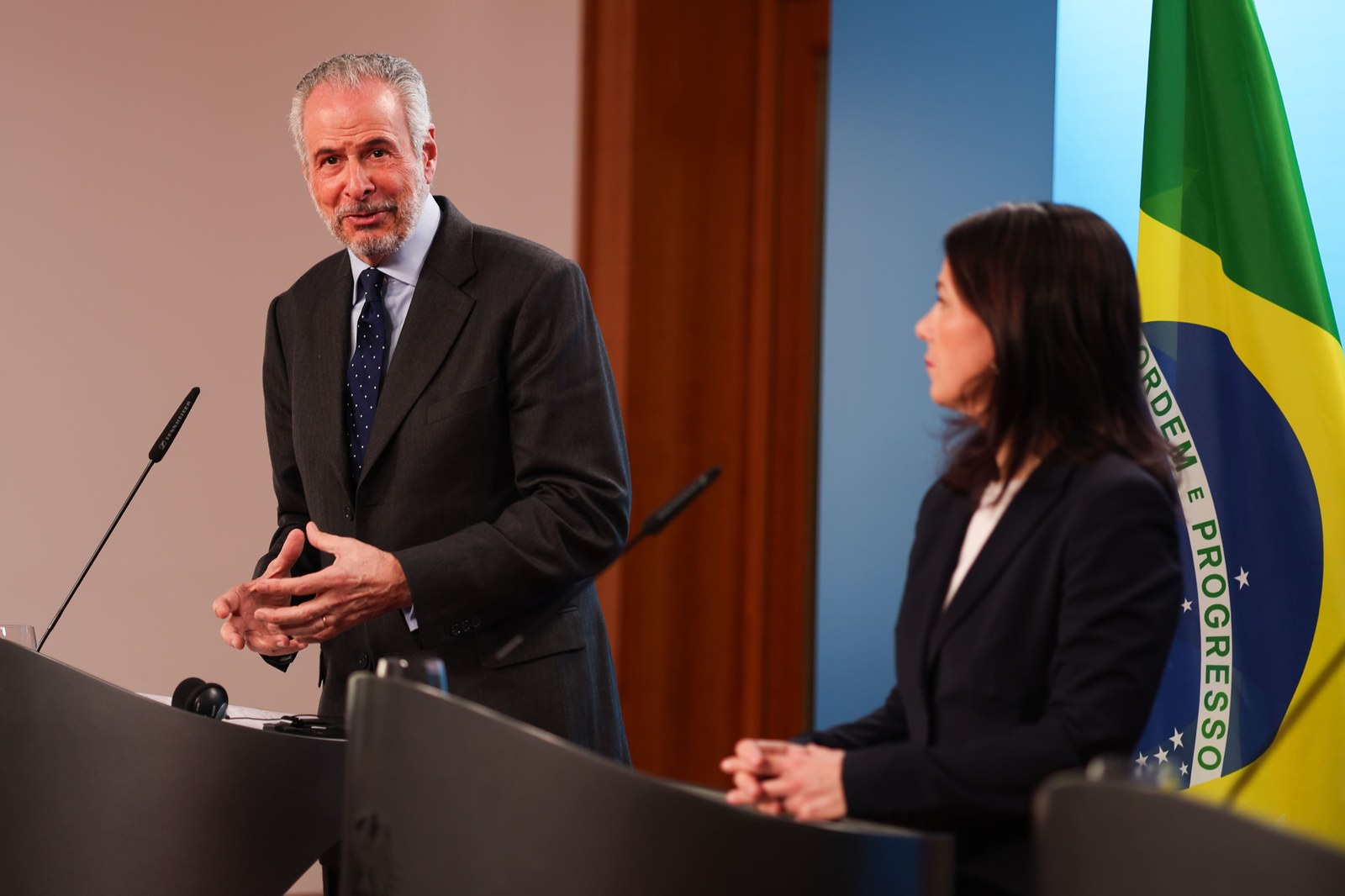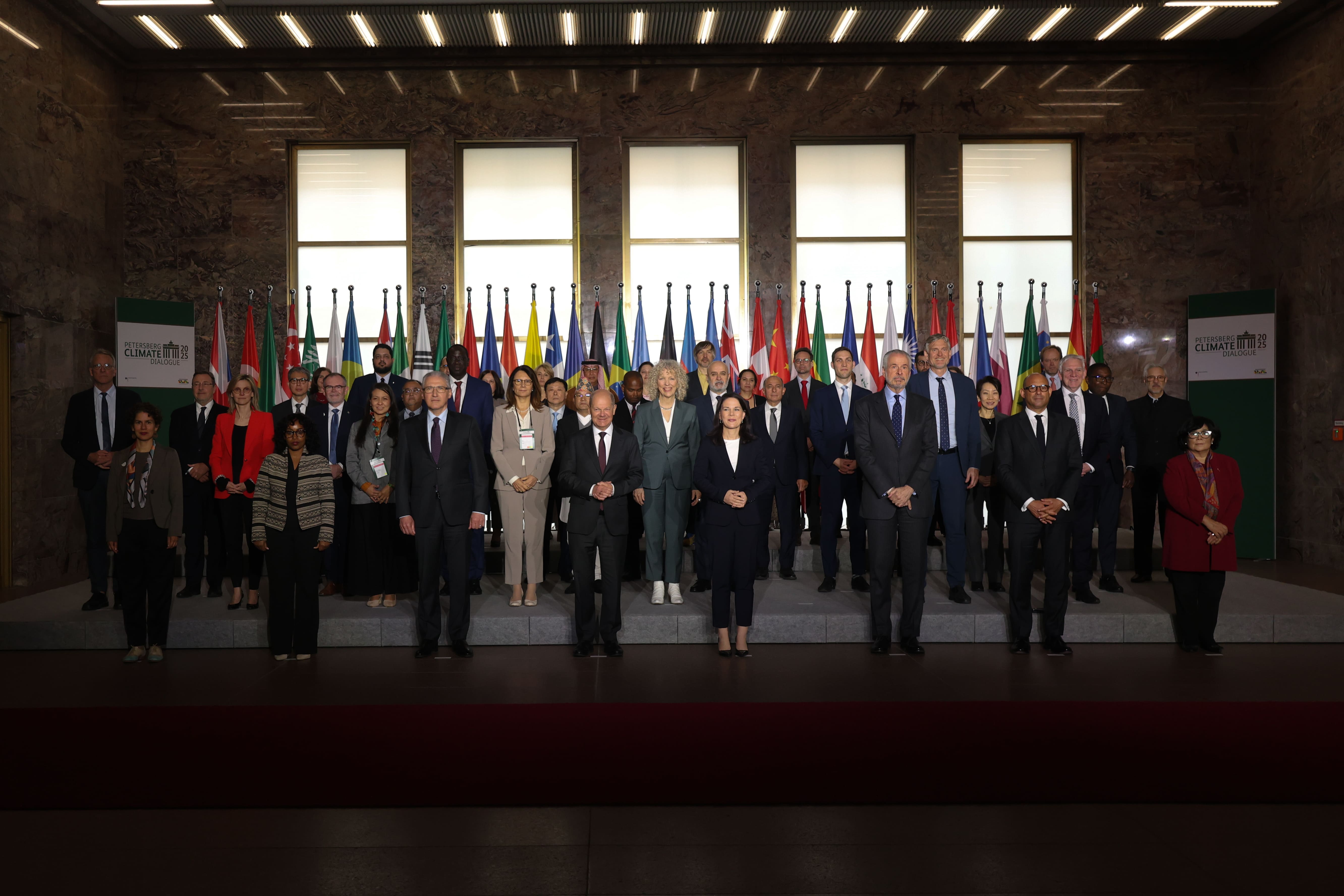Petersberg Dialogue: Pre-COP30 climate debate stresses commitment to climate action and multilateralism
Debates in Berlin, gathering representatives from 40 Countries, stress "mutirão" joint in climate change efforts

Official COP30 website
Commitment to multilateralism to address geopolitical challenges and cooperation to accelerate climate action. This is the outcome of the Petersberg Climate Dialogue held last week in Berlin, Germany. The meeting, organized by the German government, is part of the calendar of debates in preparation for the COPs (United Nations Climate Change Conferences) and was co-chaired this year by Brasil, which will host COP30 in Belém in November.
In Berlin, 40 countries reaffirmed their commitment to tackling climate change and addressed key issues for COP30. These included adaptation, mitigation, just transition, and the Baku-Belém Roadmap for USD 1.3 trillion in climate finance, a document that Azerbaijan and Brasil will present this year as presidents of COPs 29 and 30.
Held since 2010, the meeting is the first at ministerial level in the pre-COP calendar. German Chancellor Olaf Scholz and Foreign Minister Annalena Baerbock attended the activities, as well as COP30 president Ambassador André Corrêa do Lago and the conference's executive director Ana Toni.
According to the COP30 president, the assessment of the countries was positive, highlighting their commitment to multilateral climate cooperation despite the geopolitical landscape. The diplomat highlights that the debates stressed the principle of "mutirão" (a word of Tupi origin) based on the idea that climate action must be collective, inclusive, and continuous.
"We were impressed by how many countries adopted this expression and began to use the concept of "mutirão", a principle that we want to apply to Belém," said Corrêa do Lago.
The ambassador mentioned the call launched by Brasil in the first letter of the COP30 presidency, launched in March, to accelerate collective action to tackle climate change. In addition to national and sub-national governments, civil society, businesses, the financial sector, and others are key players in the solution.
"The Dialogue allowed us to see how we will work with other countries to achieve tangible results at COP30," said Ana Toni, executive director of the COP30 conference.
Brasil's presidency also highlighted the goal of launching a new decade of implementation in Belém, following the conclusion of the Paris Agreement rulebook last year. Brasil's representatives also called for ambition in the Nationally Determined Contributions (NDCs) that countries are supposed to submit by February.
So far, only 19 countries, including Brasil, have submitted their targets. Brasil's NDC, submitted to the UNFCCC in November, calls for a 59-67% reduction in net greenhouse gas emissions by 2035 compared to 2005 levels.
Greater ambition is not only possible but also offers economic opportunities, according to an analysis presented at Petersberg by the Organization for Economic Cooperation and Development and the United Nations Development Program. Among other things, the study shows that well-designed climate policies in alignment with the Paris Agreement can lead to increased economic growth, as well as reduced greenhouse gas emissions and increased productivity and innovation.
According to the study, global GDP in 2040 would be 0.2% higher with more robust climate policies aligned with the Paris Agreement than with current policies. In the long term, if climate disasters are avoided, more robust climate targets could help avoid significant economic losses and increase world GDP by up to 3% by 2050. By 2100, the increase in GDP could be as high as 13%, according to the study.
Furthermore, if investments in energy transformation are complemented by measures to increase food security, governance reforms, and access to basic services, nine out of ten countries with low human development indices could improve their development prospects by 2050. According to the analysis, such measures could lift an additional 175 million people out of extreme poverty.

Opening of the COP30 Dialogues
The annual Petersberg Climate Dialogue is a ministerial meeting organized by the German government in partnership with the country that will chair the next United Nations Climate Change Conference. This year, the venue was a key point for Brasil's agenda at COP30 and for the Germans to stress the ongoing importance of the climate agenda in Friedrich Merz's government, expected to form in the next few days.
The discussions gathered ministers and senior officials on the climate and sustainability agenda from the world's major economies, island states, and developing countries, as well as observers. Countries pledged their support for solutions to ensure that COP30 in Belém do Pará in November provides the necessary leverage to move from the climate deal-making phase to implementation.
Until November, other events will set the stage for the negotiations to be held in Brasil. On May 7 and 8, the Copenhagen Ministerial Climate Conference will be held in Denmark.
English version: Trad. Bárbara Menezes

